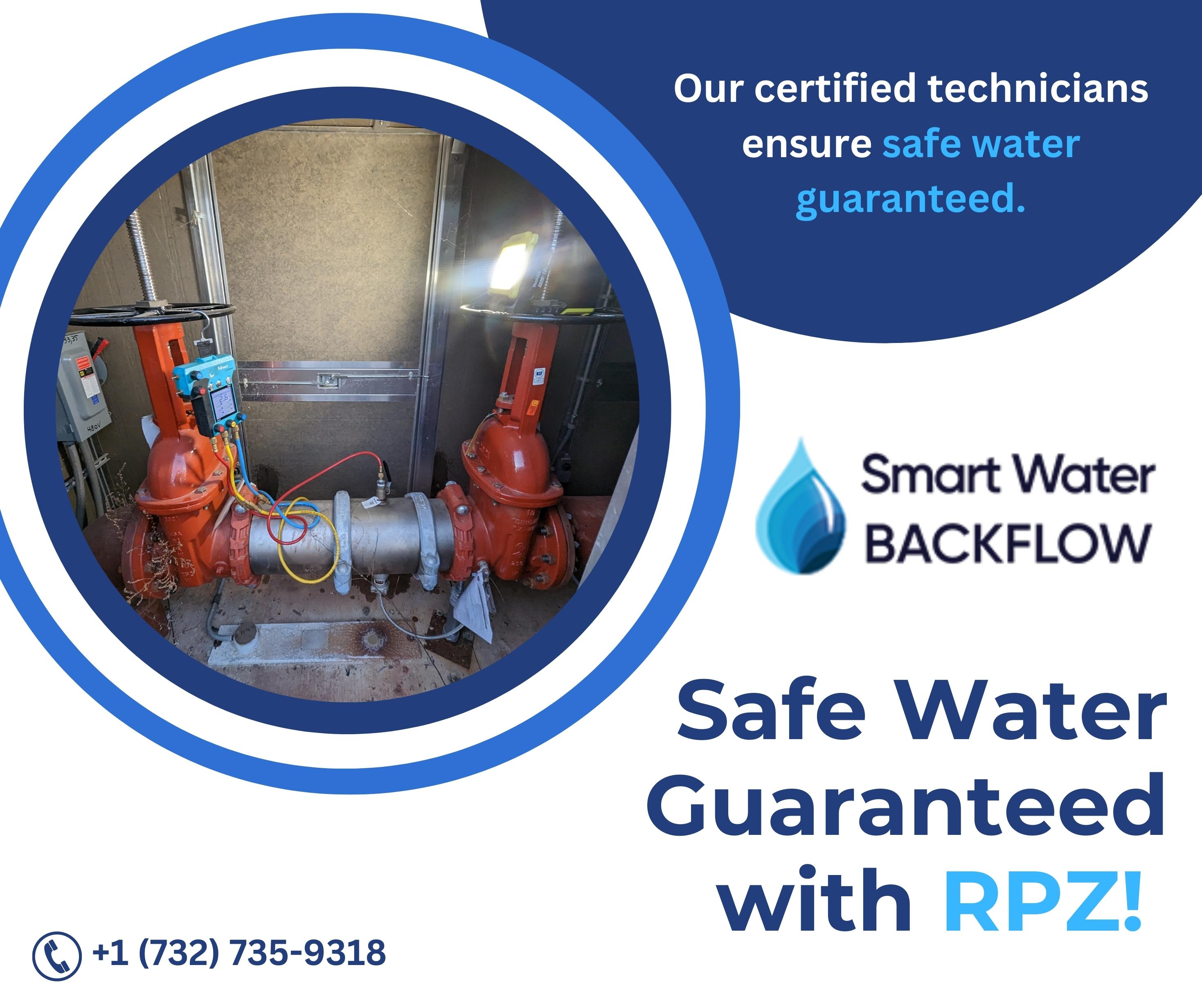5 Reasons Why RPZ Backflow Testing matters

Your health is your wealth, and drinking safe and clean water plays an essential role in that. Sometimes, due to backflow in our water supply, our drinking water gets contaminated, which can cause serious health hazards. Therefore, it is of utmost importance that we do regular backflow testing and prevention. In this regard, Reduced Pressure Zone (RPZ) backflow testing plays a pivotal role which ensures that our water supply is safe from backflow. Read out these five reasons why it is important and what consequences we must face if we miss the Annual Testing in NJ.
It protects from contamination
RPZ testing protects our water supply from contamination which may cause due to backflow. Now we all know that backflow may occur due to changes in water pressure caused by events such as water main breaks, firefighting operations, or nearby construction work. If the water pressure drops, it can create a vacuum in the water system, reversing water flow and allowing contaminants to enter the potable water supply. Installing an RPZ backflow preventer will act as a mechanical barrier minimizing the risk of contamination.
Compliance with Regulations
Municipalities and water authorities often mandate RPZ backflow testing to ensure compliance with local and national regulations. These regulations are implemented to maintain the quality and safety of drinking water and protect public health. Those who fail to comply with testing requirements may incur penalties, fines, or even discontinue water services until testing is completed.
Identifying and Addressing Backflow Risks
If we do regular RPZ backflow testing, then it helps us to identify potential issues with the backflow prevention system. Over time, backflow preventers can experience wear and tear or become faulty, compromising their effectiveness. Regular testing can identify problems or inefficiencies, ensuring the backflow preventer functions optimally. It also saves you from costly repairs or replacements down the road.
Long-Term Cost Savings
While annual RPZ backflow testing may seem like an additional expense, it proves to be a wise investment in the long run. By preventing contamination incidents and identifying minor issues early on, you avoid the need for expensive repairs, water quality remediation, or potential legal expenses resulting from contamination cases. Moreover, by proactively maintaining your backflow prevention system, you extend its lifespan and delay the need for a costly replacement.
Gives peace of mind
Knowing that your RPZ backflow prevention system is regularly tested and functioning correctly provides peace of mind for you and your community. As a responsible property owner or facility manager, ensuring the safety of your water supply reflects positively on your reputation and fosters trust among residents, customers, or employees. Moreover, when your community is confident in the safety of their drinking water, it fosters a sense of well-being and security.
Consequences of failing to perform annual testing
Failing to perform annual RPZ backflow testing can have serious repercussions. Apart from exposing your water supply to potential contamination, you may face legal consequences and fines for non-compliance with regulations. In some cases, water authorities might even cut off your water supply until the testing is completed, causing significant disruptions to your operations and inconveniencing residents or customers.
Conclusion
RPZ backflow testing is indispensable to safeguarding our water supply and maintaining public health. Failing to perform annual testing can lead to severe consequences, making it imperative for property owners and facility managers to prioritize and invest in this essential preventive measure. Let’s come together and work towards preserving our water’s purity and safety for all’s well-being.
Leave a Reply